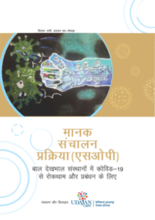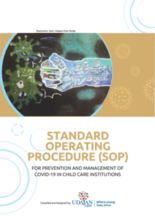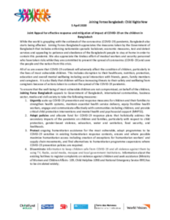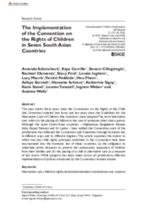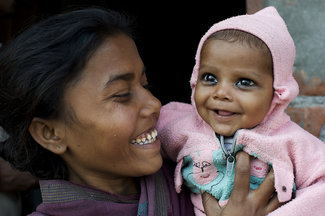

Displaying 261 - 270 of 757
This study aimed to determine the approach to child welfare in Iran by reviewing Iran’s laws and macro policies, and analysing them to provide an explicit and comprehensive definition for child welfare.
UNICEF India is seeking a consultant to support implementation of the UNICEF programme for alternative care.
"Many orphanages across the district have completely cordoned off their premises, disallowing outsiders from stepping in so as to prevent any potential spreading of COVID-19," says this article from the Hindu, reporting from Madurai, India.
"The sudden imposition of a 21-day lockdown in India to stop the spread of the coronavirus has thrown the lives of millions of children into chaos," says this article from BBC News.
Child abuse hotlines have seen an increase in calls asking for protection from abuse and violence in light of the lockdown put in place to limit the spread of the coronavirus, according to this article from India Times.
This booklet from Udayan Care provides guidance on how to ensure the health, safety, and wellbeing of children in child care institutions in India during the COVID-19 pandemic.
This booklet from Udayan Care provides guidance on how to ensure the health, safety, and wellbeing of children in child care institutions in India during the COVID-19 pandemic.
To ensure that the well-being of the most vulnerable children are not compromised, Joining Forces Bangladesh appeals to the Government of Bangladesh, international communities, business sector, and media and civil society to take the measures outlined in this joint appeal.
This article will make a case for investing in families and communities rather than orphanages by putting a spotlight on ECFG member investments in Asia.
This article examines the extent to which two key child rights principles enshrined in the Convention have been incorporated into the domestic law of seven South Asian countries: (a) the obligation to undertake active measures to prevent the unnecessary separation of children from their families and (b) the placing of a child in alternative care as a measure of last resort.

